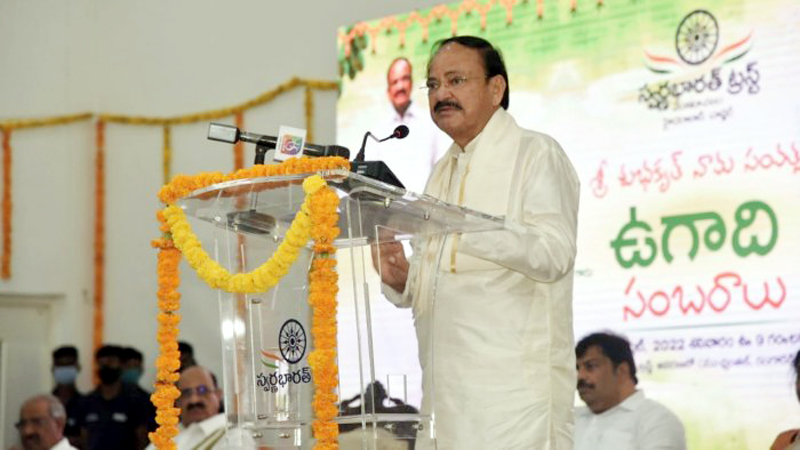HYDERABAD, Apr 2: The Vice President M. Venkaiah Naidu on Saturday said that the traditional New Year festival, celebrated across the country with different names and customs such as Ugadi, Yugadi, Gudi Padwa, Chaitra Sukladi, Cheti Chand, Sajibu Cheiraoba, Navreh is a symbol of Indian culture, reflecting its diversity and underlying unity.
Speaking at Ugadi celebrations at Swarna Bharat Trust here, Naidu called upon youth to preserve and protect Indian culture and understand the significance behind each Indian festival, an official release said.
He wished the traditional New Year would usher prosperity and happiness in the lives of the people of the country.
The Vice President observed that strengthening the bonds between people of different cultures promotes harmony in society. Recalling India’s civilisational value of ‘Vasudhaiva Kutumbakam,’ he called for sustained efforts from everyone for the country’s progress.
“Let’s unite and move forward, let’s achieve Atma Nirbhar Bharat,” he said.
Observing that colonial rule exploited India and led to an inferiority complex among Indians, he urged everyone to take pride in India’s ancient heritage.
According to him, India is experiencing a rapid growth in all sectors and that the entire world is looking up to the country.
Calling for the highest quality of debate in public discourse, he said nobody should diminish the country’s status on the world stage.
Reminding that the New Year festivals are also a celebration of nature’s bounty, the Vice President urged everyone to take a pledge to preserve nature and switch to sustainable practices.
He also advised people, particularly youngsters to shun sedentary lifestyles and adopt healthy habits.
The Vice President stressed the importance of using Indian languages in public life and suggested “everyone should cherish and use their mother tongue in their daily lives, to the extent possible.”
He also wanted mother tongue to be the medium of instruction in schools, at least till the primary level and opined that Indian languages should be increasingly used in administration and in the courts. (PTI)
Trending Now
E-Paper


